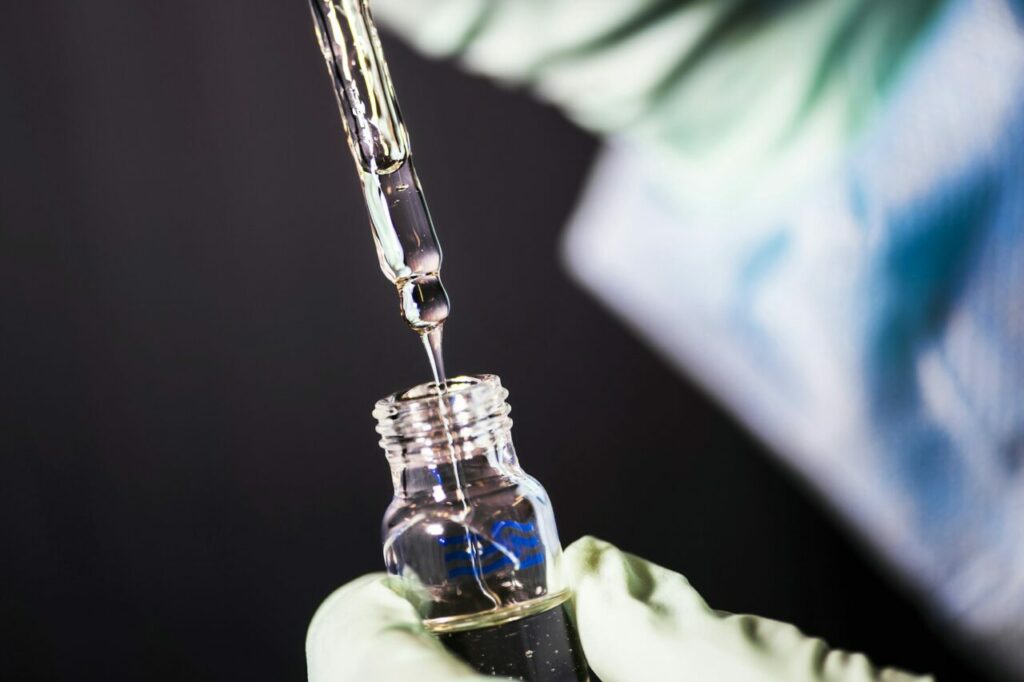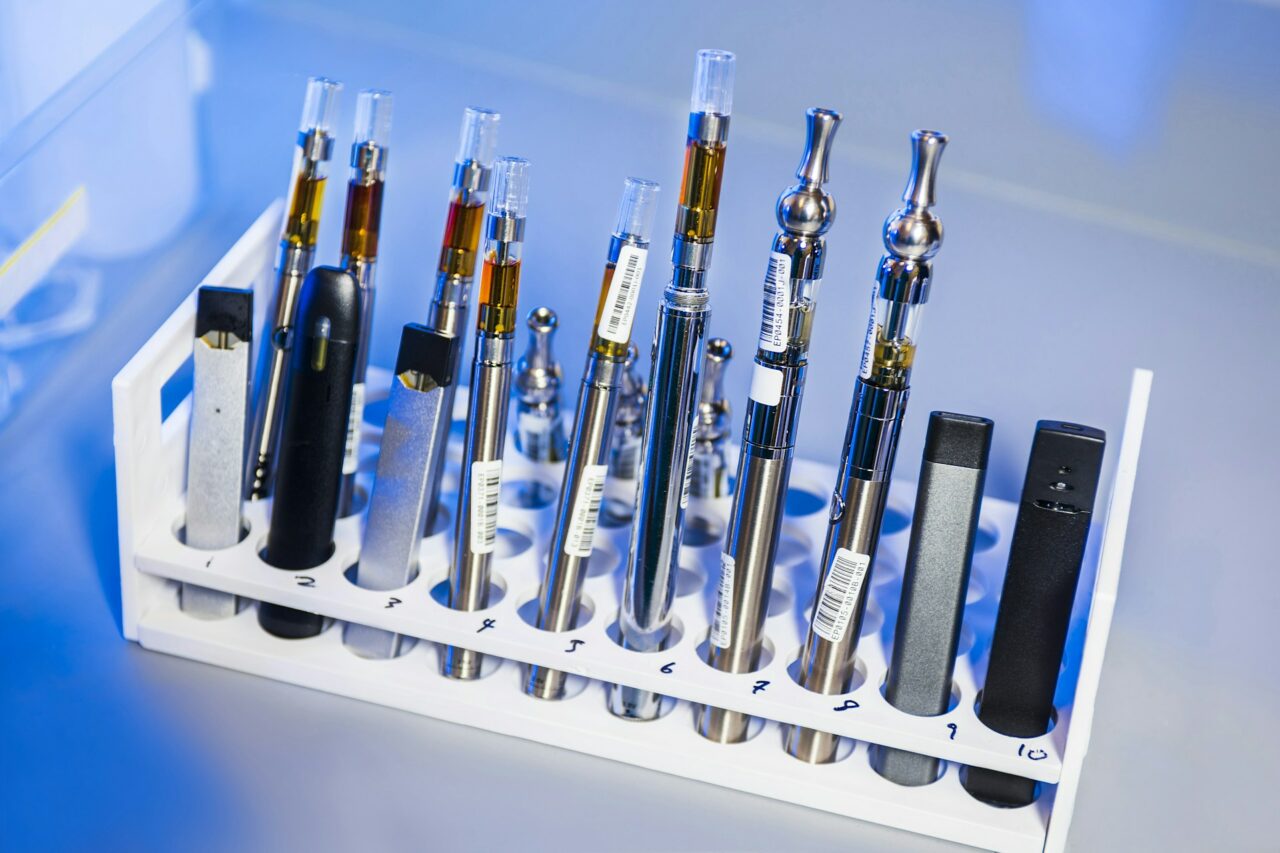The Drug Enforcement Administration (DEA) is increasing production quotas for pioneering products such as the DMT vape pen, marijuana, and other psychedelics. Canada leads the way in ushering in an exciting era of understanding.
The recent announcement of increased production for certain substances opens up unprecedented research opportunities.
Key Takeaways:
- By 2024, the DEA intends to raise production caps to 20,000 grams of psilocybin and 11,000 grams of dimethyltryptamine.
- The spirit molecule disrupts repetitive thought patterns and enhances brain and cognitive functions.
- A proposed increase in these substances could advance medical science and offer cost-effective alternative treatments.
DEA’s 2024 Strategy: Navigating the Future of Psychedelics
In a significant move towards bolstering research capabilities, the DEA recently suggested an increase in the production of certain controlled substances for scientific research in 2024. This reflects the emerging recognition of the need for larger quantities to meet medical and research demands.
Proposal Breakdown
The revised proposal substantially increases production quotas, demonstrating a growing commitment to clinical trials. For instance, the target for certain substances has nearly doubled, setting a production limit of 20,000 grams for psilocybin and 11,000 grams for DMT vape cartridges.
These changes reflect a direct response to input from registered manufacturers, who emphasized the need for larger quantities to support current and future research. Production goals for related compounds have been maintained at previously high levels to ensure a steady supply for therapeutic studies.
Potential Benefits for Scientific Research and Therapeutic Uses
The increased availability of these substances could pave the way for fresh scientific initiatives, particularly in understanding their therapeutic potential. As more research is conducted, scientists may uncover innovative treatments for a variety of conditions, including mental health disorders.
This intensified focus could not only expand our knowledge but also align with the growing public interest in alternative therapies. These modifications could propel medical science into new territories and offer more cost-effective treatment alternatives than traditional ones. treatments.
Diving into the Unknown: Present and Future Research on Dimethylamine and Psychedelics in Canada
Canada is progressively focusing on the exploration of alternative therapeutic options, with recent developments suggesting a potential transformation in mental health treatment.
In 2021, there was a significant increase in interest in substances known for their psychological benefits, even though market dynamics slowed down subsequently. However, ongoing clinical trials continue to produce promising results.

Current Landscape
On December 5, 2022, Health Canada released a Notice to Stakeholders outlining the anticipated risk-management procedures in clinical trials related to psychedelic-assisted psychotherapy. In Canada, distinct provinces have different approaches to the regulation of psychedelics and their research:
| Ontario | The Centre for Addiction and Mental Health (“CAMH”) received the first Canadian federal grant to investigate psilocybin. |
| Alberta | Approval granted for the therapeutic use of specific psychedelics, including psilocybin, psilocin, ketamine, LSD, MMDA, and DMT. |
| University of Guelph | Obtained Health Canada’s authorization to grow psilocybin-containing mushrooms |
| Saskatchewan | Support is available at the Linden Medical Centre for individuals dealing with PTSD to access psychedelics |
| New Brunswick | Hosts a series of private clinics offering PTSD treatment with ketamine |
| British Columbia | Has decriminalized personal possession of certain substances |
| Quebec | Mindspace by Numinus legally provides psilocybin and MDMA for the treatment of treatment-resistant depression and PTSD. |
Prospective Research Areas
There are numerous promising areas for future research, especially relating to the therapeutic applications of dimethyltryptamine and psilocybin. As the evidence of their efficacy strengthens, future studies could delve into:
In her experience, she finds that each use of the DMT vape pen cartridges offers a unique and different sensation. “With the first inhale, my body relaxes intensely, and colors seem much more vibrant,” she describes. “I feel a sense of weightlessness, as if floating in water, yet an unseen force seems to hold me securely.“
Entrepreneur Tim Leonard describes a deeply profound experience: “My spirit seemed to leave my body and enter a realm that can only be described as divine.” He saw “a semi-transparent human skull with a pulsating, radiating brain of vibrant colors and energy,” delivering a profound message about the miracle of human life.
The Rise of Vapor Pens: A Guide for Conscious Consumers
The increasing popularity of high-quality DMT vape pens and cartridges has transformed how people engage with this substance. These portable devices offer a discreet and convenient way to enjoy its benefits. As more people begin to use these devices, the need for responsible usage and awareness of ongoing research becomes increasingly significant.
- Educate Yourself: Stay informed with reliable sources of information about studies and regulations. Keep up with clinical trials and their outcomes, as they can provide valuable insights into safety and efficacy.
- Know Your Product: Purchase from reputable sellers that offer clear labeling and quality guarantees. Understanding what’s in your product can lead to a safer usage experience.
- Practice Moderation: Start with smaller doses to understand your body’s response. Mindful consumption can enhance the overall experience.
- Join the Community: Engage in discussions with other users and healthcare professionals. Sharing experiences and insights fosters a supportive environment and encourages responsible use.
Looking Ahead: How Canada’s Online Dispensary is Preparing for the Psychedelic Wave – Where to Purchase Vape Pens
As research expands our
Powerful Magic Mushrooms Canada delivers well-informed choices for every journey by providing in-depth insights into these substances. We are your dependable online dispensary for premier psilocybin products, making your voyage into the vibrant universe of psychedelics more straightforward than ever.
With recent attention from the DEA igniting interest in psychedelic research, consumers can look forward to a host of intriguing prospects in the future.
Frequently Asked Questions
Can residents obtain the substances that the DEA has requested?
No. These substances are currently under research scrutiny for their potential advantages. If you aim to purchase a DMT vape cart or any of the mentioned substances, you have the option to either visit a clinic that provides them as part of a treatment regimen or procure them from an online dispensary.
What makes dimethyltryptamine different from other psychedelic substances?
Dimethyltryptamine stands out from other psychedelics due to its powerful effect and short duration. Unlike LSD, which can alter neural activity for several hours, dimethyltryptamine induces a brief, yet deeply engaging shift in consciousness, marked by vivid visual patterns and various other sensations.
Which condition is currently seeing improvements due to the usage of dimethyltryptamine?
Several studies have shown that this compound can yield immediate antidepressant effects in patients the day following treatment. Additional research has explored its impact on mental health outcomes among healthy volunteers. The primary emphasis is on reducing symptoms of depression and anxiety.





